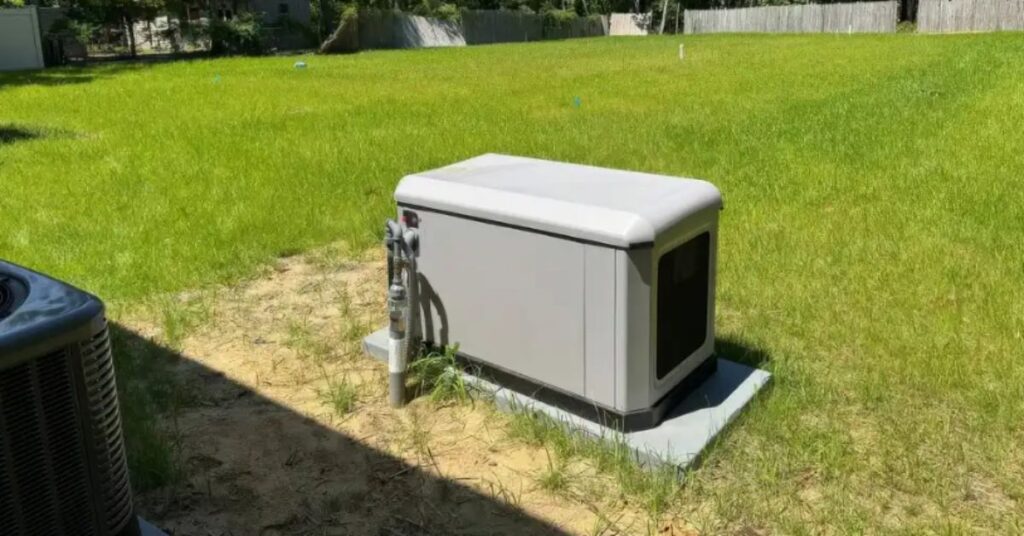Your generator powers your home when the light goes out abruptly. It’s a machine that helps preserve the normalcy of your daily routine while you wait for the lights to turn back on. But here’s a critical question: How long can a generator realistically power your home? Knowing the answer is essential for avoiding unnecessary stress during outages.
Here, your trusted partner for generator installation in Merritt Island, FL, helps you better understand your generator’s capabilities.
What Determines a Generator’s Runtime?
The size and capacity of your generator hold the most sway in its runtime. This means larger generators can often power more appliances or systems simultaneously. One thing to note, however, is that larger units consume fuel at a faster rate. On the other hand, smaller units, while more fuel-efficient, may not sustain the energy needs of a full household.
Another critical factor is the type of fuel your generator uses. Gasoline, propane, and diesel each offer different levels of efficiency. Diesel generators tend to run longer per gallon compared to gasoline models, while propane offers cleaner energy but may burn quicker.
The efficiency of your generator also plays a key role. Newer models or premium brands like Generac often feature advanced technology designed to optimize fuel consumption and extend runtime. Choosing a reliable, energy-efficient generator can make a significant difference in how long your home stays powered.

Typical Generator Runtimes
The average portable generator can run anywhere from 8 to 12 hours on a full tank of fuel, depending on the load. Standby generators can last much longer. This type of generator is often installed as a backup for entire homes and can last much longer—sometimes up to 24 to 48 hours—before requiring refueling.
While these averages provide a baseline, real-world performance varies based on how heavily the generator is used. Running high-energy appliances like HVAC systems, refrigerators, and water heaters simultaneously will deplete fuel more quickly.
Regardless of what generator you purchase, planning is non-negotiable for long-term outages. It’s crucial to monitor your generator’s runtime and plan for refueling. Ahead of an outage, be sure to procure fuel. It’s also worth noting that generators need periodic rest to avoid overheating, even those designed for continuous operation.
Why Maintenance Matters
Even the best generators can fail if not properly maintained. Routine maintenance from competent generator services allows your generator to perform at its peak during critical moments. Oil changes, air filter replacements, and fuel line inspections—all these are invaluable in making sure your generator runs efficiently.
Ignoring maintenance reduces your generator’s runtime and leads to costly repairs. For instance, clogged filters or low oil levels force the engine to work harder, consuming more fuel and potentially damaging internal components.
Choosing the Right Generator
Selecting the right generator for your home begins with assessing your energy needs. Take stock of the essential appliances and systems you want to power during an outage. This includes refrigerators, lights, sump pumps, and any medical devices.
Once you have a clear understanding of your energy requirements, match them with the generator’s wattage. Keep in mind that it’s better to choose a generator with a slightly higher capacity than you think you’ll need. Overloading a generator can decrease its efficiency and shorten its runtime.
Investing in a Generac generator installation means opting for a brand that offers a range of options tailored to different needs. Investing in a high-quality generator means better reliability, a longer runtime, and greater peace of mind.
What If You Don’t Know Your Generator’s Limits?
Operating a generator without understanding its limitations means you might run out of fuel at the worst possible moment or risk damaging the unit by overloading it. Either scenario can leave you without power when you need it most.
Failing to account for maintenance needs is another common oversight. Without regular upkeep, even a top-tier generator can fail prematurely. Imagine being in the middle of a storm, only to discover that your generator won’t start because of a neglected issue.
By knowing your generator’s runtime, fuel requirements, and maintenance schedule, you can confidently face any power outage.
Maximizing Runtime and Efficiency
Optimize usage to get the most out of your generator, minimizing the likelihood of a generator replacement. Start by prioritizing which appliances and systems need power. Avoid running unnecessary devices that drain fuel.
Use energy-efficient appliances whenever possible. For instance, LED lights consume far less power than traditional incandescent bulbs, allowing your generator to last longer.
Effective planning around power outages starts with understanding how long a generator can power your home. By choosing the right generator, maintaining it properly, and using it efficiently, you can ensure your home can outlast power outages.






